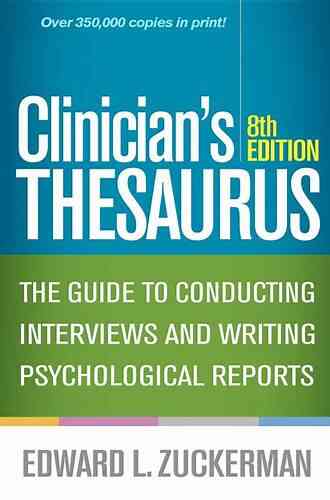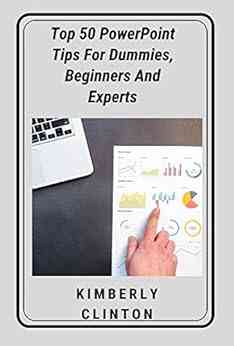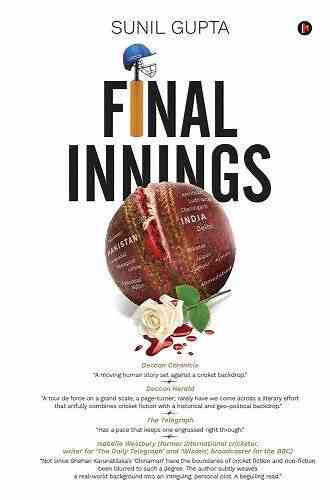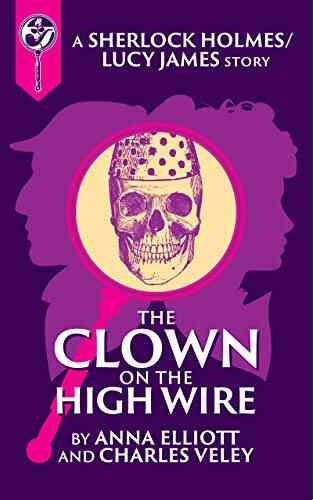The Ultimate Guide to Conducting Interviews and Writing Psychological Reports: Unlocking Human Minds

Have you ever wondered what goes on behind the closed doors of a psychologist's office? Are you fascinated by the inner workings of the human mind? If so, you've come to the right place! In this comprehensive guide, we will delve into the art of conducting interviews and writing psychological reports – the very heart and soul of this awe-inspiring field.
Unveiling the Mysteries: Mastering Psychological Interviews
Pulling back the curtain of secrecy, we will begin our journey by exploring the intricate process of conducting psychological interviews. These interviews are an essential component of understanding human behavior, diagnosing mental health disorders, and facilitating the healing process.
Imagine a scenario where a patient walks into a psychologist's office, carrying the weight of their emotional struggles. How does the psychologist extract the crucial information necessary for diagnosis and treatment? It all starts with the art of questioning.
4.6 out of 5
| Language | : | English |
| File size | : | 6517 KB |
| Screen Reader | : | Supported |
| X-Ray | : | Enabled |
| Print length | : | 400 pages |
| X-Ray for textbooks | : | Enabled |
The Power of Skillful Questioning
Effective questioning is the key to unlocking human minds. Psychologists employ a range of techniques to encourage patients to open up and share their thoughts, feelings, and experiences. Through open-ended questions, active listening, and empathetic understanding, they create a safe space for the patient to feel heard and understood.
Furthermore, psychologists often utilize indirect questioning techniques to gently navigate sensitive topics and delve deep into the patient's psyche. This delicate dance requires finesse and tact, as the practitioner guides the conversation while avoiding distress or causing harm to the patient.
The Art of Active Listening
It is said that "listening is an art." In the realm of psychology, this adage holds true. Active listening is a vital skill that enables psychologists to go beyond the surface level and truly understand their patients. By giving undivided attention, using nonverbal cues, and clarifying information, the practitioner conveys empathy and establishes a strong therapeutic alliance.
Listening attentively not only allows the psychologist to grasp the patient's experiences but also helps them recognize patterns, identify coping mechanisms, and assess the severity of symptoms. These invaluable insights lay the groundwork for formulating an accurate diagnosis and devising an appropriate treatment plan.
Unleashing the Story: Crafting Psychological Reports
As the interview concludes, the psychologist embarks on the next phase of their work – writing a psychological report. This meticulous and comprehensive document serves as the bridge between the interview findings and the practical implications for the patient.
Elements of a Psychological Report
A well-crafted psychological report encompasses various essential components, providing an accurate and comprehensive snapshot of the patient's mental health. It typically includes:
- Referral information: An overview of why the patient was referred for assessment.
- Background information: A comprehensive overview of the patient's history, including personal, educational, and medical background.
- Observations: A reflection of the psychologist's observations during the interview sessions.
- Assessment results: A detailed analysis of the patient's test scores and assessment outcomes.
- Diagnosis and formulation: An expert opinion on the patient's mental health condition based on gathered information and diagnostic criteria.
- Treatment recommendations: A personalized treatment plan aimed at addressing the patient's specific needs and facilitating their recovery.
- Prognosis: A professional estimation of the future course and potential outcomes of the patient's condition.
The Artistry of Report Writing
Writing a psychological report requires more than just conveying information - it calls for an artful and precise balance between scientific accuracy and readable prose. The report must be understandable not only to fellow psychologists but also to the patient and other related professionals involved in the care process.
Clarity, organization, and brevity are key aspects of report writing. A well-structured report ensures that information is presented in a logical manner, making it easier for readers to follow and comprehend. Moreover, good report writing involves summarizing complex findings, using plain language, and avoiding jargon, thereby enhancing accessibility and facilitating communication.
The Ethical Dimension: Navigating Boundaries
Conducting interviews and writing psychological reports necessitates adhering to a rigorous ethical framework. Psychologists understand the immense responsibility they carry and prioritize the well-being and confidentiality of their patients.
Respecting autonomy, informed consent, and maintaining privacy are just some of the ethical considerations integral to the practice. Psychologists must also reflect on their personal biases, continuously engage in self-reflection, and strive for cultural competence to provide inclusive and appropriate care for diverse populations.
The Power to Heal: Empowering Lives
As we draw near to the of this guide, one thing becomes clear: the art of conducting interviews and writing psychological reports is a powerful tool for understanding and healing the human mind. Through skillful questioning, active listening, and astute report writing, psychologists unlock the potential to change lives.
Whether you are considering a career in psychology or simply intrigued by the mysteries of the mind, this guide has offered you a glimpse into this captivating domain. Now armed with knowledge, take a step forward into the world of psychology and embark on your own journey to uncover the secrets that lie within each person's unique story.
4.6 out of 5
| Language | : | English |
| File size | : | 6517 KB |
| Screen Reader | : | Supported |
| X-Ray | : | Enabled |
| Print length | : | 400 pages |
| X-Ray for textbooks | : | Enabled |
Hundreds of thousands of students and early-career professionals have relied on this authoritative report-writing tool, now updated for DSM-5/ICD-10-CM and newer types of evaluations. In a convenient large-size format, the book covers nearly all areas of concern addressed in intakes, evaluations, treatment plans, progress notes, and closing summaries. The user seeking the right wording for a clinical document can skim and select from thousands of technical terms, behavioral descriptors, and standard statements. Also provided are interview questions for almost every symptomatic behavior, a huge collection of mental status questions, a reproducible Mental Status Evaluation summary form, and links to hundreds of Internet resources. The companion website offers all the URLs from the book, the reproducible forms, and a handy reference on current psychiatric medications.
New to This Edition
*A list of all psychiatric ICD-10 diagnoses (all of the codes in DSM-5, plus many more),including Z codes essential to a comprehensive biopsychosocial evaluation.
*Sample evaluation report keyed to the book's chapters.
*Sections on additional clinical issues: intimate partner violence, gender identity, human trafficking, recovery-oriented language, and more.
*Many more Internet links, including a wide variety of screening and assessment tools.
See also The Paper Office for the Digital Age, Fifth Edition, by Edward L. Zuckerman and Keely Kolmes, which provides the essential record-keeping and risk-reduction tools that every psychotherapy practice needs.
Do you want to contribute by writing guest posts on this blog?
Please contact us and send us a resume of previous articles that you have written.




















Light bulbAdvertise smarter! Our strategic ad space ensures maximum exposure. Reserve your spot today!
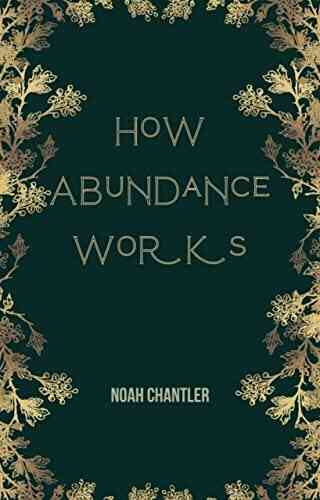
 Nikolai GogolUnveiling the Intricate Mechanisms of Abundance: A Journey into How Abundance...
Nikolai GogolUnveiling the Intricate Mechanisms of Abundance: A Journey into How Abundance... Jared PowellFollow ·9.5k
Jared PowellFollow ·9.5k Jack LondonFollow ·2.8k
Jack LondonFollow ·2.8k Stephen FosterFollow ·8.8k
Stephen FosterFollow ·8.8k Todd TurnerFollow ·19.4k
Todd TurnerFollow ·19.4k Yukio MishimaFollow ·9.8k
Yukio MishimaFollow ·9.8k Mark TwainFollow ·19k
Mark TwainFollow ·19k Nick TurnerFollow ·16.4k
Nick TurnerFollow ·16.4k Lord ByronFollow ·3.1k
Lord ByronFollow ·3.1k

 Brian West
Brian WestTaking Pride Maria Baes: Embracing Individuality and...
When it comes to self-expression and...

 Gordon Cox
Gordon CoxThe Red Well Western Trio: Experience the Authentic Wild...
Are you looking for an exhilarating escape...

 Kyle Powell
Kyle PowellThe Mesmerizing Colors of Black Hills Fall: Experience...
As the warm days of summer fade away,...

 J.D. Salinger
J.D. SalingerNo Romance Nhb Modern Plays: An Unconventional...
Love has always been a predominant theme...

 Ernest J. Gaines
Ernest J. GainesShunned Seal Team Disavowed: Unraveling the Secrets of...
When it comes to the...

 Colt Simmons
Colt SimmonsThe Enthralling Journey of Grimstone Croft and Wesson...
Are you ready to embark on an extraordinary...

 Harry Cook
Harry CookMarried Struggle Varsity - Unlocking the Secrets for a...
Marriage is a beautiful journey...

 Douglas Powell
Douglas PowellDragons Vs Elves Vs Humans Coming Of Age Fantasy Beyond...
Once upon a time, in a realm beyond our...

 Ted Simmons
Ted SimmonsOfficial Game Guide Updated For Mass Effect Final Version
Mass Effect, the...

 Marc Foster
Marc FosterThe Mistborn Saga: Journey into a World of Magic,...
Welcome to the enchanting...
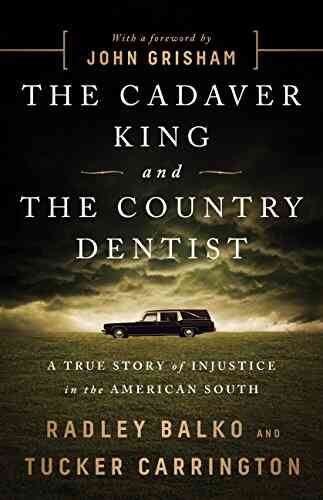
 Al Foster
Al FosterThe True Story of Injustice in the American South: A Tale...
From the pages of history, we uncover a...

 Vince Hayes
Vince HayesDiscover the Incredible Awakening to a New Worldview and...
Have you ever found yourself questioning the...
4.6 out of 5
| Language | : | English |
| File size | : | 6517 KB |
| Screen Reader | : | Supported |
| X-Ray | : | Enabled |
| Print length | : | 400 pages |
| X-Ray for textbooks | : | Enabled |


